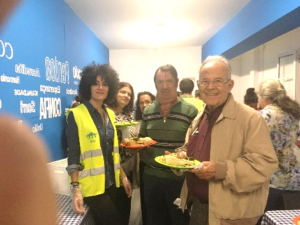FROM MY HEART TO YOUR HEART – I am the Jesus you say you love
– Brought to you by Fr. Bernardino Andrade (bernardinodandrade@gmail.com)
There is a story that comes out of the Second World War that will haunt you if you think about it. It is about a little Jewish boy who was living in a small Polish village when he and all the other Jews in the vicinity were rounded up by Nazi troops and sentenced to death.
This boy joined his neighbours in digging a shallow ditch for their own graves. Then they were lined up against a wall and machine-gunned. But none of the bullets hit the little boy. His naked body was splattered with the blood of his parents, and as he fell into the ditch he pretended to be dead.
The grave was so shallow that the thin covering of dirt did not prevent him from breathing. Several hours later, when darkness fell, this 10-year old boy crawled out of his grave. With blood and dirt caked on his little body, he made his way to the nearest home and begged for help.
A woman answered the door and immediately recognized him as one of the Jewish boys marked for death by the Nazis, so she screamed at him to go away and slammed the door.
Dirty, bloody, and shivering, this little boy limped from one house to the next, begging for help. But he always got the same response. People were afraid to help.
Finally, in desperation, he knocked on a door, and just before the lady of the house could tell him to leave, he cried out, « Don’t you recognize me? I am the Jesus you say you love! ». The lady froze in her tracks for what seemed like an eternity to the little boy.
Then, with tears streaming down her face, she threw open her arms. She picked up the boy, and took him inside to safety.
Sometimes we need to be reminded that when we do it unto the least of these, we do it unto Him. Christian Discipleship is a call to availability. It is also a call to sensitivity.
Love and Peace,
Fr. Bernardino Andrade
